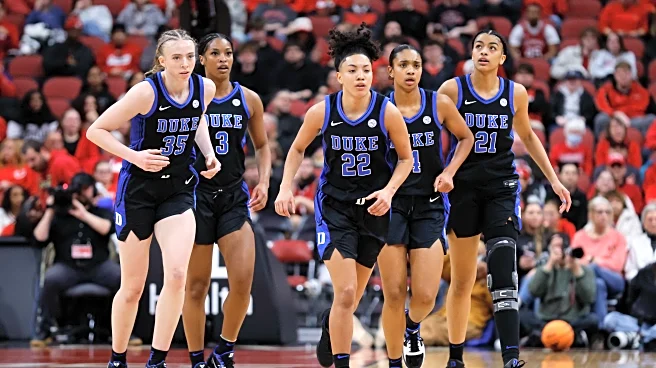What's Happening?
Nearly 60,000 patients of Johns Hopkins Medicine in Maryland are at risk of losing their in-network insurance coverage due to an unresolved contract dispute with UnitedHealthcare (UHC). The disagreement between the two entities has reached a critical point, with no deal in place as of the upcoming Monday deadline. This situation arises from ongoing negotiations over reimbursement rates and other contractual terms, which have yet to yield a resolution. The lack of agreement means that patients who rely on UnitedHealthcare for their medical insurance may face higher out-of-pocket costs if they continue to seek care from Johns Hopkins facilities. This development is part of a broader trend of disputes between healthcare providers and insurers, often centered around financial terms and service coverage.
Why It's Important?
The potential loss of in-network status for Johns Hopkins Medicine under UnitedHealthcare could significantly impact patients financially and logistically. Patients may need to find alternative healthcare providers or face increased medical expenses, which could lead to disruptions in their ongoing medical treatments. This situation highlights the broader challenges within the U.S. healthcare system, where negotiations between insurers and providers can directly affect patient access to care. The outcome of this dispute could set a precedent for future negotiations between other healthcare institutions and insurance companies, influencing how healthcare services are priced and accessed across the country.
What's Next?
If no agreement is reached, patients will need to decide whether to continue with Johns Hopkins Medicine and pay higher costs or switch to other in-network providers. Both Johns Hopkins and UnitedHealthcare are likely to face pressure from patients and advocacy groups to resolve the dispute swiftly. The situation may also attract attention from regulators and policymakers concerned about the accessibility and affordability of healthcare. Continued negotiations are expected, with both parties potentially seeking a compromise to avoid further disruption to patient care.











